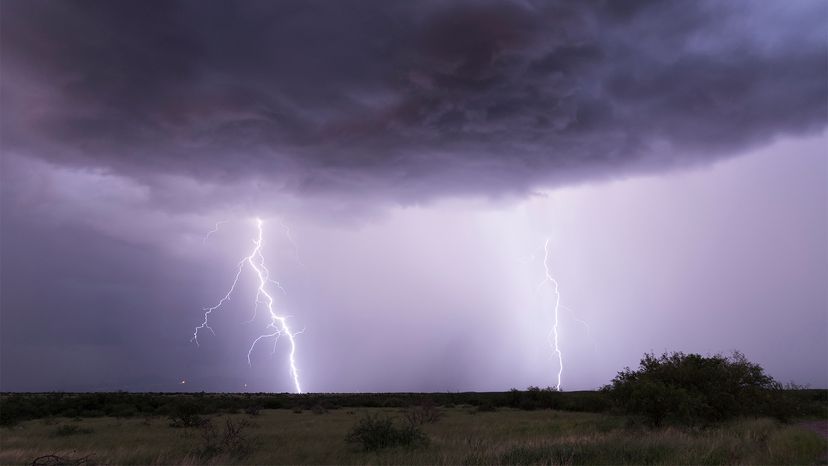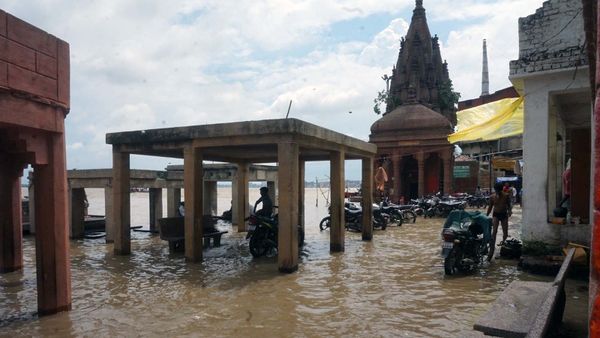
Key Takeaways
- Weather refers to a specific place's short-term conditions, such as temperature, precipitation and wind.
- Climate refers to long-term patterns and averages of weather elements over a larger region and extended period.
You might remember when in 2015, Republican Sen. James Inhofe of Oklahoma set out to refute the "hysteria" over global warming by tossing a snowball around inside the U.S. Capitol. The obvious implication: How could the climate be changing that radically from humans burning fossil fuels and pumping greenhouse gases into the atmosphere, since we still have snowfall and chilly temperatures on a winter day?
But even if you're not a U.S. Senator from an oil-producing state, you might be wondering how it is that scientists can predict climate trends over many years, but can't predict what the weather will be three weeks from today?
Advertisement
As NASA and other scientific organizations have been explaining for years, the reason is that weather and climate are two very different things. Basically, weather is what happens today or tomorrow or this week, while climate happens over many years.
"Weather is the day-to-day variation in meteorological conditions," Jonathan Martin, a professor of atmospheric and oceanic sciences at the University of Wisconsin-Madison, explains. "Climate is the aggregate of weather events, resulting in a long-term average."
Scientists look at climate in terms of fixed 30-year periods, Martin says. Right now, for example, scientists compare the daily temperature to the period that started in 1981 and ended in 2010. In 2021, they'll shift forward by 10 years, and start comparing temperatures to the period between 1991 and 2020, and so on. Scientists rely on 30-year periods because it's an amount of time that's long enough to produce meaningful comparisons, but just short enough that any changes that occur will be subtle, though not necessarily imperceptible. "Over a 50-year period, in comparison, you would notice a bigger change," Martin says.
Those 30-year periods help us to put the weather on a particular day in the right context. As Martin explains, comparing the temperature on Dec. 5, 2018 to the same day 100 years ago wouldn't provide that much useful information, because the climate was too different then. But comparing it to the average of the temperature readings for every Dec. 5 between 1981 and 2010, when the climate conditions were pretty much constant, makes it possible to say whether it's an unusually cold or warm day.
"We're trying to compare apples to apples," Martin says.
When it comes to prediction, weather and climate also are very different. Weather forecasting, Martin explains, is based upon observation of conditions that already are occurring in real time in the atmosphere. Because those conditions only exist for a short time, weather can be reliably forecast only over relatively short periods of 10 to 14 days at most. "That's theoretical — my confidence ends at day eight," Martin says.
Envisioning climate, in contrast, is much more low-resolution — scientists are trying to project what the trend will be over a long period, not what the weather will be like on a specific day 50 or 100 years from now. That involves gathering and crunching huge amounts of data in powerful computers and doing modeling.
"In one sense, climate does not affect weather; it is a description of the weather over a long period, " explains Jeffrey S. Dukes, director of the Climate Change Research Center at Purdue University. "You could turn that around and say that climate provides you with information about how likely you are to get a given type of weather at a given time of year, but historically the climate has been determined by the weather over long periods. In another sense, though, climate for a given location is determined by a bunch of factors such as the latitude and position on the planet, which affects how it is influenced by the circulation of the atmosphere and oceans, and the daytime heating of continents. Climate is also influenced by the composition of the atmosphere, the transport of water from soil to air by plants, and other factors.
"On a given day, the sum of all these influences determines the weather, but as some of these larger-scale factors change over time, they will drag the weather and the climate along with them."
In recent years, some of the sharp distinction between weather and climate has blurred slightly, as scientists have used increasingly sophisticated models and accumulated knowledge in an effort to figure out the extent to which specific weather events — say, a hurricane, a heat wave, or a monster snowstorm — is actually a function of climate change driven by humans pumping greenhouse emissions into the atmosphere.
By running thousands of computer simulations, "we can run all kinds of 'what if' experiments," Martin says. "We can say, this is how the atmosphere will behave if you take out one factor."
While such analysis is still a work in progress, Martin thinks that eventually, it will be possible to determine the extent to which specific weather events are influenced by climate change.
Advertisement


